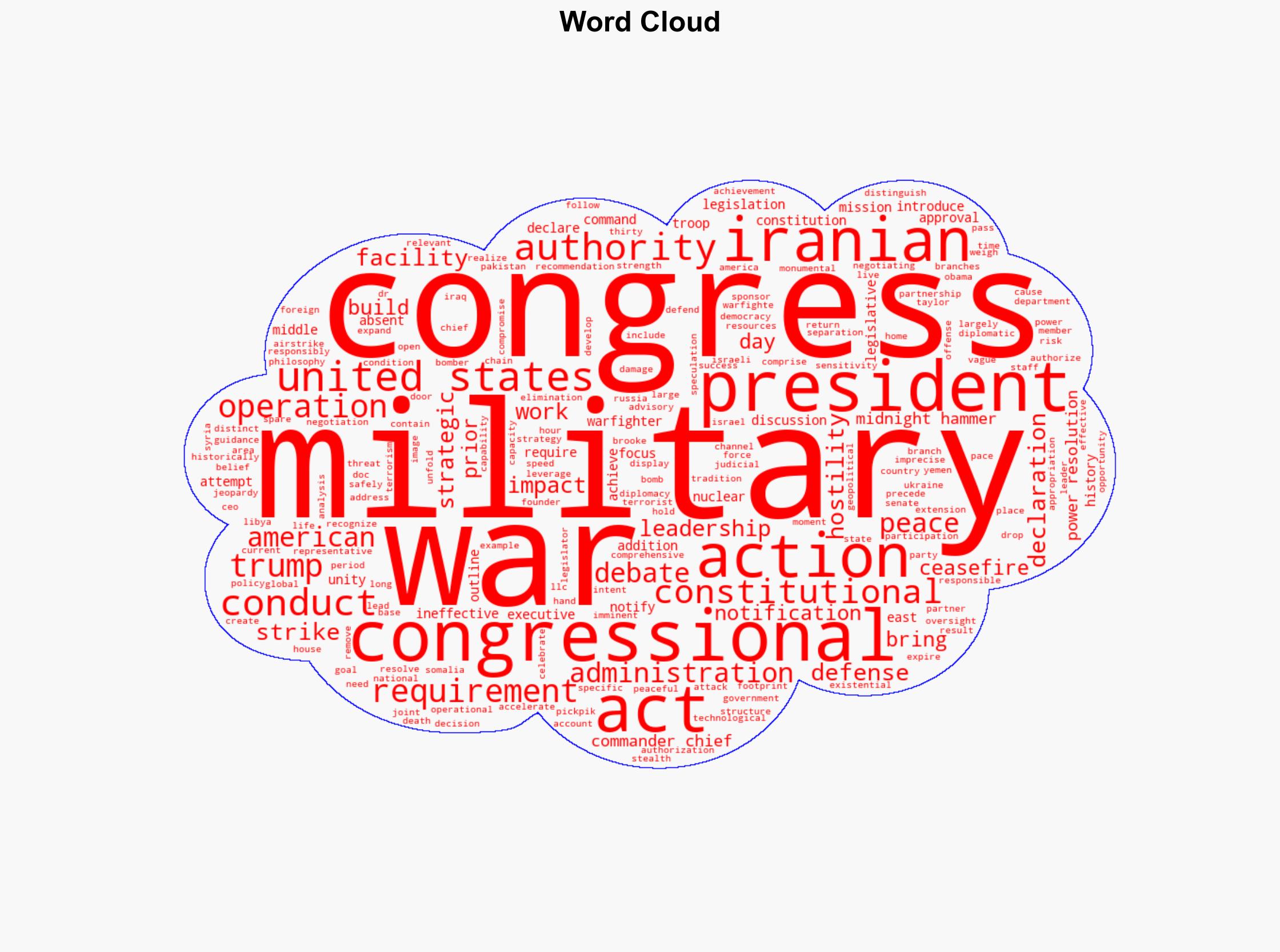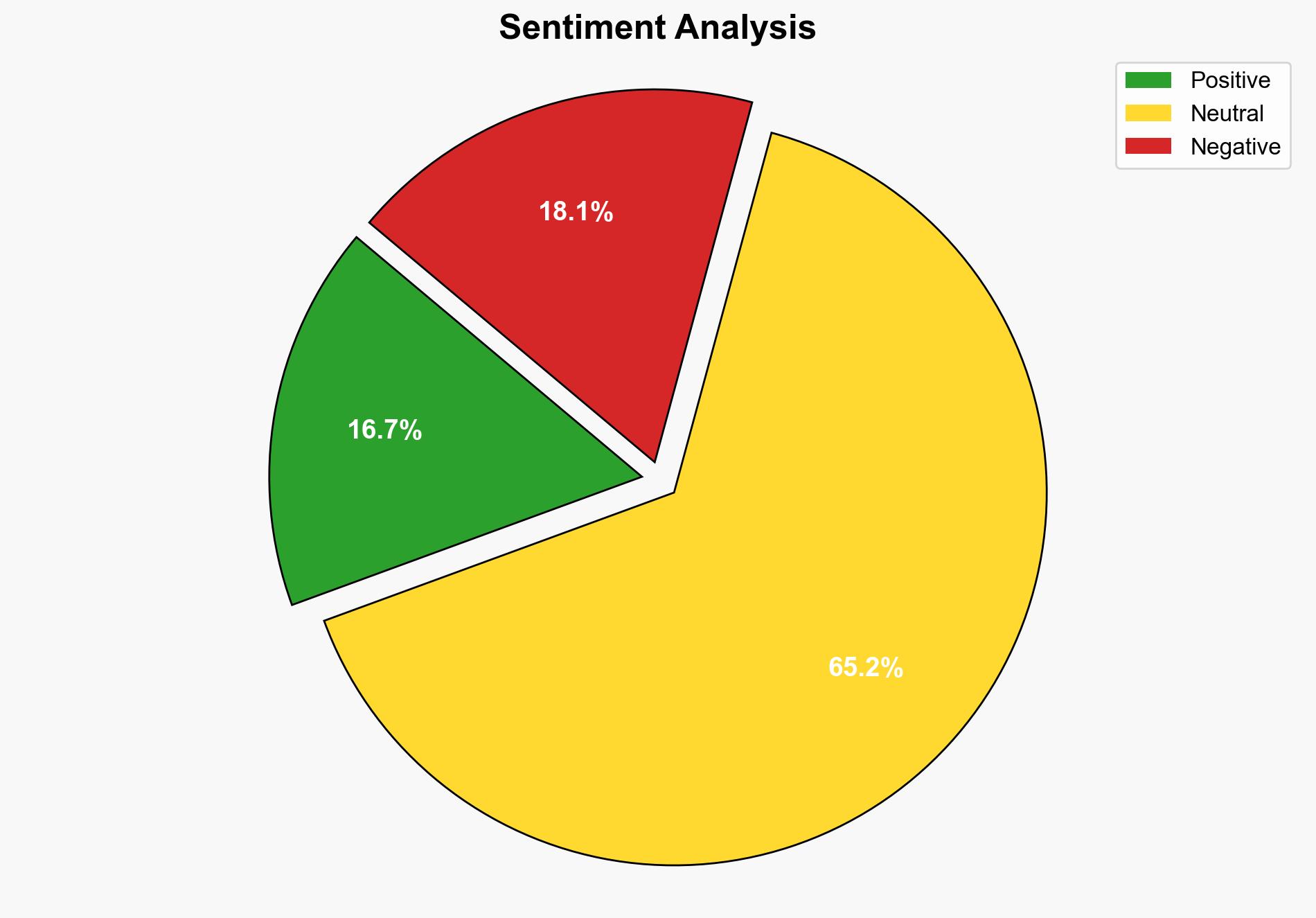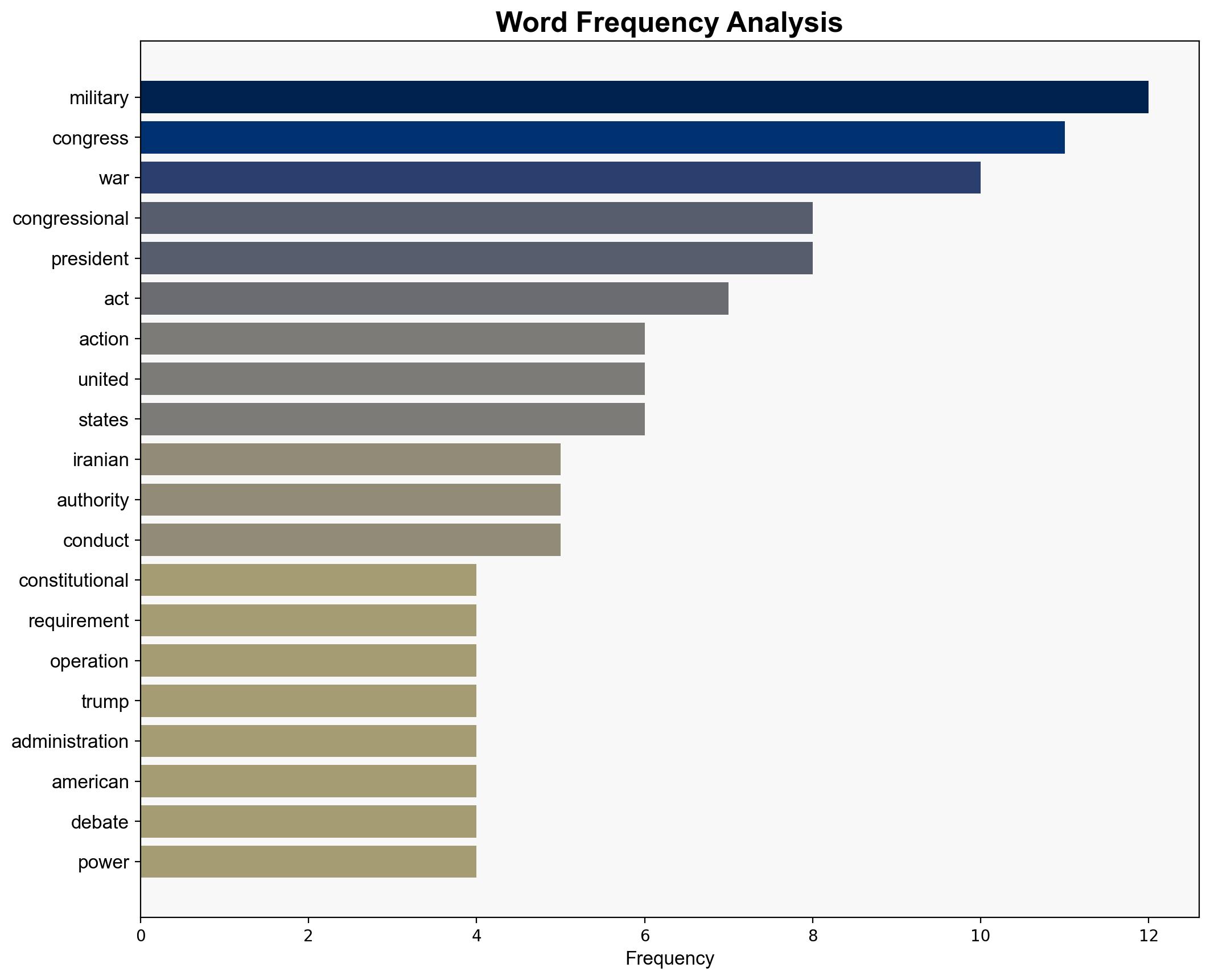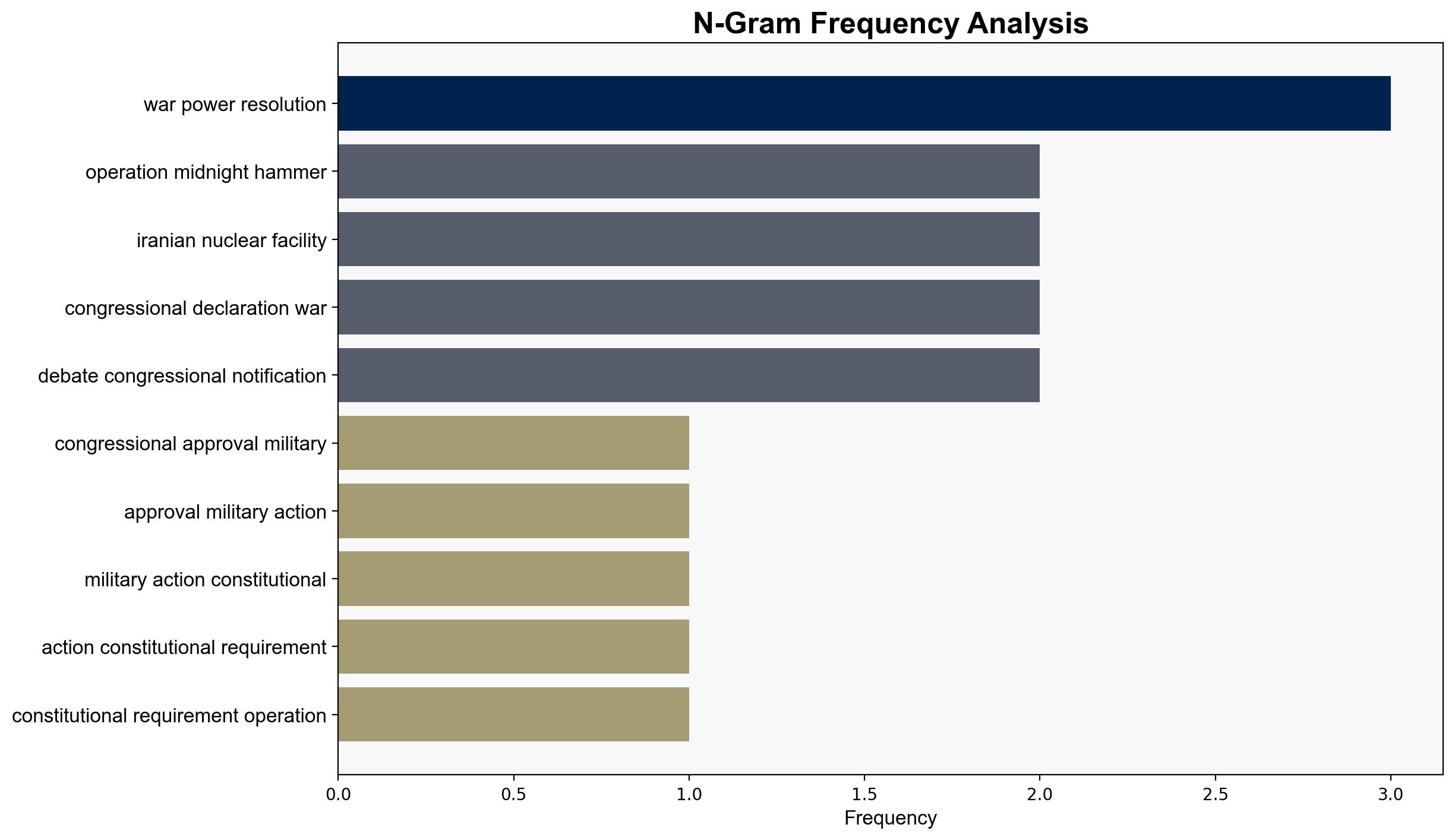Congressional approval for military actions A constitutional requirement – Americanthinker.com
Published on: 2025-07-28
Intelligence Report: Congressional approval for military actions A constitutional requirement – Americanthinker.com
1. BLUF (Bottom Line Up Front)
The analysis suggests a moderate confidence level that the requirement for congressional approval for military actions remains a contentious issue, with significant implications for U.S. foreign policy and military strategy. The hypothesis that the executive branch can act unilaterally in urgent situations is better supported by historical precedent and current practices. It is recommended that Congress and the executive branch establish clearer guidelines to balance rapid response needs with constitutional oversight.
2. Competing Hypotheses
1. **Hypothesis A**: Congressional approval is constitutionally required for all military actions, ensuring democratic oversight and adherence to the separation of powers.
2. **Hypothesis B**: The executive branch can initiate military actions without prior congressional approval in situations deemed urgent or when immediate threats are perceived, based on historical precedent and operational necessity.
Using ACH 2.0, Hypothesis B is more supported due to historical examples where presidents have acted without congressional approval, citing the War Powers Resolution’s ineffectiveness and the need for rapid decision-making in modern warfare.
3. Key Assumptions and Red Flags
– **Assumptions**: Hypothesis A assumes a strict interpretation of the Constitution, while Hypothesis B assumes flexibility in executive powers during emergencies.
– **Red Flags**: Potential bias in interpreting historical precedents; lack of clarity in the War Powers Resolution; possible underestimation of congressional oversight importance.
– **Inconsistencies**: The article suggests a successful military operation without congressional approval, yet it calls for legislative action, highlighting a contradiction in the perceived necessity of congressional involvement.
4. Implications and Strategic Risks
– **Geopolitical Risks**: Unilateral actions may strain international alliances and provoke adversaries, increasing the risk of escalation.
– **Domestic Risks**: Potential for political backlash and legal challenges, undermining public trust in government decision-making.
– **Operational Risks**: Delays in response times if congressional approval is required could jeopardize mission success and national security.
5. Recommendations and Outlook
- **Mitigation**: Develop a streamlined process for congressional consultation in urgent situations to maintain oversight without hindering operational effectiveness.
- **Opportunities**: Strengthen inter-branch communication to enhance strategic coherence and public confidence.
- **Projections**:
- **Best Case**: Clear guidelines lead to effective collaboration, enhancing national security and international standing.
- **Worst Case**: Continued ambiguity results in legal disputes and weakened strategic posture.
- **Most Likely**: Incremental improvements in legislative-executive coordination, with ongoing debates about constitutional interpretations.
6. Key Individuals and Entities
– Donald Trump
– Barack Obama
– U.S. Congress
– Joint Chiefs of Staff
7. Thematic Tags
national security threats, constitutional law, military strategy, U.S. foreign policy





